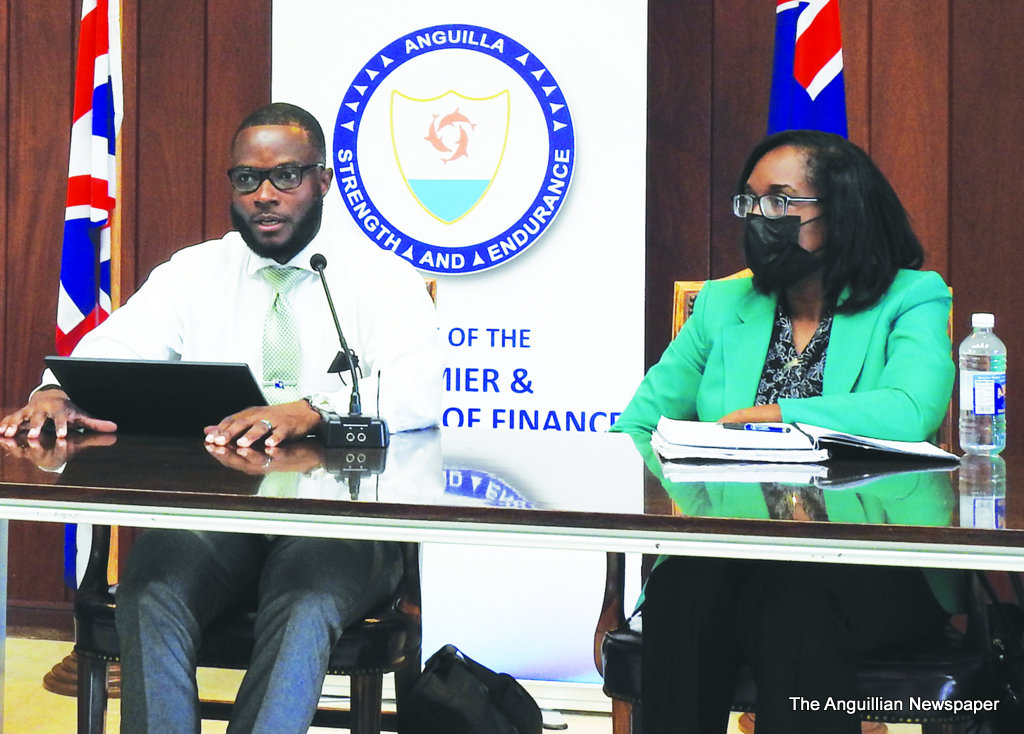
On April 4, the Inland Revenue Department (IRD) launched a registration drive for the Goods and Services Tax (GST) which is slated to be implemented in Anguilla on July 1, 2022.
On Monday, April 11, IRD Comptroller, Mr Lonnie Hobson, and Tax Consultant, Ms Cynthia Wineglass, made a presentation at the government’s press briefing in an attempt to keep the public informed about the upcoming GST mechanism.
Mr Hobson outlined the requirements for businesses and persons to register for GST, and gave some clarity as to the implementation of GST. He noted that registration is now open, and once a business or person is registered that registration will remain in effect for an additional two years.
Registration is mandatory for businesses and persons:
• who met or exceeded the registration threshold of EC$300,000 in the last 12 months;
• who expect to meet the threshold in the next 12 months;
• who operate as an accommodation provider, auctioneer, promoter and proprietor of public entertainment;
• that is a Government Statutory Body.
“For the GST mechanism, GST is charged on sales (Output Tax) that is subtracted from GST paid on purchases (Input Tax) and from that, you will get any GST that is payable (GST Refund) or in some instances, may be in an excess credit,” Mr Hobson stated.
Transitional arrangements, referred to as Temporary Bonded Warehouses (TBWs), have been established to facilitate storage of imports from May 1-July 31, 2022. The objective of these transitional arrangements is “to minimise temporary inflation impact” caused by the implementation of GST. These stored goods will not attract duties and taxes until they are released from the TBW for local use and consumption.
As consumers, “we must look for a GST certificate in the business establishment to determine if that business is registered to charge GST, shop around for the best prices, be sure to request a tax invoice or sales receipt – if none is issued – and help in policing of the tax,” Mr Hobson noted.
Remember that exempt goods and supplies will not attract GST:
• Most financial services
• Medical devices, services, prescriptions, pharmaceuticals
• Education services and supplies ‘subject to approval from Department of Education’
• Vacant land
• Domestic public transport and international transport of passengers and goods
Be on the look-out for the full list as soon as it becomes available.
Some key points to remember as July 1 approaches and with it, the enactment of the GST, remember that:
• Everyone is a consumer
• Only GST registered persons can charge GST
• Only GST registered persons can claim GST paid on inputs
• GST paid should not be passed on to consumers as the GST registered person can recover it
• Prices displayed, quoted and advertised, must be GST inclusive.








